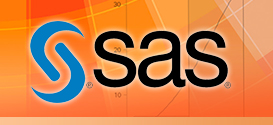
WRDS has developed a variety of powerful analytics tools to support you in your research. Get more out of your data with less effort.

Investigate abnormal stock returns/volumes around event dates by uploading your own “events” file, or analyzing reaction to firm-specific events from Capital IQ’s Key Development database.
- Instant visualization of the effect of events on U.S. equities
- Output includes statistics, plots

With the Financial Ratios: Firm Level tool you can access over 70 pre-calculated financial ratios for all U.S. companies across eight different categories.
- Calculates ratios most commonly used in accounting and finance research
- Monthly time series of financial ratios per company

Conduct a high frequency intraday event study by utilizing underlying NYSE Trade and Quote (TAQ) data. Options include uploading your own “events” file, or using corporate and macro-economic news events provided by RavenPack News Analytics database.
- Second-by-second effect of events on stock returns
- Output includes statistics, plots, underlying table

Studies using longer horizon event windows are typically over one year long. Upload your own events to perform a long run event study. Or, run an event study based on Capital IQ Key Development Events.
- Use the buy-and-hold abnormal return (BHAR) method to measure long-run abnormal stock returns after events

Expand global market research using security returns directly from Compustat Global and index returns computed by WRDS from underlying Compustat Global data. You can upload your own “events” file, or use corporate events from Capital IQ’s Key Development database.
- Instant visualization of the effect of events on international stocks
- Output includes statistics, plots, underlying table

Access option characteristics not readily included in OptionMetrics. This tool, using both OptionMetrics and CRSP data, enables you to obtain common option-based equity indicators, such as option skewness, without writing code. Calculate variables, such as:
- Time-to-expiration
- Moneyness
- Spread

This tool allows you to tap into the 13F filings by institutional investors, accessing metrics commonly used in academic literature, including overall ownership by institutions, concentration of institutional ownership, and number of block ownerships.
- Simple point and click query interface

SEC filings prepared for text analysis, including frequency count of all words in filings and amendments since 1993. Researchers can query word counts across all filings, or against specific company filings, and access similarity measures, including:
- Cosine similarity
- Jaccard similarity
- Minimum edit distance between current and previous filings

Compose a portfolio, set parameters, and use this tool to calculate the corresponding Efficient Frontier, Optimal Complete Portfolio, Optimal Risky Portfolio as well as Minimum Variance Portfolio based on your selections.
- Graphic portfolio vizualization
- Output includes spreadsheet with portfolio statistics

Because different financial databases use different formats of CUSIPS, conversion may be required for combining data sets. With the CUSIP Converter you can convert 8 or 9 digit CUSIPs into 6, 8, or 9 digits.
- Uniform conversion of an accepted standard identifier of financial instruments

Easily obtain the raw data you require for event studies. This tool provides you with stock return and corresponding market decile return data around event dates you specify.
- Flexibility for specifying window size before and after event
- Exchanges include NYSE, AMEX, and NASDAQ
- Obtain either value or equal-weighted returns

To improve the efficiency and quality of empirical studies, WRDS has replicated widely-cited papers that represent various areas of research.
- Access code replicating methodology of well-known studies
- Customize source code to research needs
- Conduct investigations using established strategies

WRDS Programing Guides are designed to help you with specific tasks you may encounter in your research. In many of these guides, relevant SAS sample code is provided.
- Successfully navigate known issues with financial data
- Use WRDs more efficiently
- Improve quality of empirical research
Explore financial data on individual companies with Company Profiles.
- Access 12,000+ North American companies using a simple, company-centric dashboard
- Easily transition to classic WRDS tools for deeper analysis and programming options
Easily Link tables between the most frequently-used databases on the WRDS platform:
- Bond CRSP Link
- IBES CRSP Link
- OptionMetrics CRSP Link
- Daily TAQ CRSP Link
- TAQ CRSP Link
- BoardEx CRSP Compustat Link
- Refinitiv/Thomson Reuters Insiders to BoardEx Link
- Supply Chain with IDs
Study the effect of events on U.S. stocks by uploading your own “events” file or using events from Capital IQ’s Key Development database. The database contains hundreds of firm-specific events (e.g. dividend announcement, M&A) and corresponding dates. Linking this powerful data bank with the event study engine allows you to explore reactions to firm-specific events in the U.S. equity market. An additional option for specifying the size of the time window before and after the uploaded event is also available.
Uploading your own events requires subscription to CRSP daily stock file; selecting events from Capital IQ requires subscriptions to CRSP daily stock file, CRSP CCM, and Capital IQ’s Key Development database.
Types of filings covered by this engine include 10Ks, 10Qs, 8Ks, Proxy and Registration Statements, 40-F Annual Reports, Uploads, and SEC correspondence. With access to all information in SEC filings, this tool is positioned for broad research in finance, accounting, business, economics, and law (e.g., corporate due diligence, forensic accounting, disclosure research, and investment management).
Requires subscription to WRDS SEC Analytics Suite.
Stock specific daily and intraday (5 min, 15 min and 30 min) indicators created from the TAQ intraday dataset. Includes stock/flow variables created from trades and quotes, intraday volatility, spread, price impact, and many other stock volatility and liquidity measures.
Requires subscription to TAQ dataset.
Financial Ratios: Firm Level is a powerful engine that delivers over 70 pre-calculated financial ratios for all U.S. companies across eight different categories (valuation, liquidity, profitability, financial soundness, etc.). Researchers can easily obtain individual ratios for all firms in North America through point-and-click on the web query. This product can be used as a convenient tool to obtain various ratios as characteristics for controls in empirical research.
Requires subscription to CRSP, Compustat North America and IBES database.
Beta Suite enables you to calculate stocks’ loading on various risk factors in a timely manner. Output includes stock alpha, beta on risk factors (market, Fama-French factors) as well as idiosyncratic and total volatility. The tool is designed with flexibly in mind, capable of handling monthly, weekly and daily rolling regression on a common set of market risk factors.
Requires subscription to CRSP database.
Upload your own “events” file containing the security identifier (Ticker), event date, and time (00:00:00) to explore abnormal returns and volumes around the event time. Or, obtain news events from RavenPack News Analytics database to analyze intraday equity return reaction to over 150 different events, such as M&A, Rating Change, layoffs, and executive firings.
Uploading your own events requires subscriptions to TAQ; selecting events from RavenPack requires subscriptions to TAQ and RavenPack.
Upload your own events to perform a long run event study. Or, run an event study based on Capital IQ Key Development Events. The WRDS Long Run Event Study uses the buy-and-hold abnormal return (BHAR) method to measure long-run abnormal stock returns after events
Over 150 different Capital IQ Key Development Events are available, including: audit changes, bankruptcy filing, board meetings, delayed SEC filings, delistings, dividend increases, executive changes, M&A calls, regulatory authority enforcement actions, and ticker changes.
Uploading your own events requires subscription to CRSP; selecting events from Capital IQ requires subscriptions to CRSP, CRSP CCM, and Capital IQ’s Key Development database.
Provides 70+ industry-level financial ratios across eight different categories (valuation, liquidity, profitability, financial soundness, etc.). Researchers can choose between industry classifications based on SIC code by Fama and French, or select the GICS sector classification to arrive at the final average of industry level ratios, using all firms that belong to that particular industry. This tool is derived based on the output of the firm-level ratios.
Requires subscription to CRSP, Compustat North America and IBES database.
Using Compustat Global data, study the effect of events on international stocks by either uploading your own “events” file or obtaining events from Capital IQ’s Key Development database. Capital IQ’s Key Development database allows you to select from hundreds of international corporate events (e.g. M&A, bankruptcy) included in the KeyDev database to conduct event studies beyond the boundaries of North American stock markets.
Uploading your own events requires subscriptions to Compustat Global; selecting events from Capital IQ requires subscriptions to Compustat Global and Capital IQ’s Key Development database.
Quickly access total return indices (with dividends) as well as index constituents for over 40 countries. Compustat Global - Security Daily is used to construct the indices, which are market-capitalization weighted. For each country, the index portfolio is rebalanced annually at the end of the last trading day of June.
Requires subscription to Compustat Global.
Data is parsed directly from SEC forms 3, 4, and 5, and includes:
- CIK for each insider
- Name of person who signed the insider form
- Link back to the original SEC source
Requires subscription to WRDS SEC Analytics Suite.
By parsing through the entire SEC filings database, this query allows you to extract the contents of specific forms filed by companies. The most commonly used forms include 10-Ks, 10-Qs, Forms 3, 4, and 5.
Requires subscription to WRDS SEC Analytics Suite.
Monthly U.S. Corporate Bond Returns, including accrued interest, duration & yield computations, as well as buys and sell volume. Also provides linking table between bond and equity by the same company. Historical time series data starts in 2002.
Requires subscription to TRACE and Mergent FISD database.
Focusing on textual content and wording, assess the readability, sentiment/tone in financial disclosures using insights from recently published papers in the field. The Readability and Sentiment Analysis tool is designed with flexibility in mind, allowing you to search SEC filings for an individual firm or a group of firms.
Requires subscription to WRDS SEC Analytics Suite.
SAS Studio complements SAS on Unix, SAS Connect on a PC, and the SAS Share interface to R, Matlab, and other languages. SAS Studio looks like the SAS interface found on the PC, but has direct access to WRDS data like on Unix.
Option and equity level indicators are available for all U.S. options and corresponding equities going back to 1996. Using the U.S. Stock Level Output, you can obtain option-based equity characteristics from filtered option series based on standard option criteria, such as range of time to expiration, moneyness, and implied volatility. With the U.S. Daily Level Output, you are offered the flexibility to filter option series by widely used criteria, such as range of time to expiration, moneyness, and implied volatility.
Requires subscription to OptionMetrics data.
Use this tool to research a firm’s institutional ownership, with query results including measures such as number of 13-F institutional owners, number of >5% institutional block ownerships, and largest institutional ownership size.
Requires subscription to LSEG Stock Ownership database.
Through parsing of the SEC 13F Holdings data reported in XML attachments, you can access details on holdings as well as well as summary information of equity positions held by institutional investors. As such format was mandated by the SEC after June 2013, the SEC 13F Holdings data is complete only for the period after that reporting date.
Requires subscription to WRDS SEC Analytics Suite.
Researchers can use this WRDS SEC text Analysis tool to query word counts across all SEC filings, or against specific company filings. The tool includes a Word Summary query form, presenting the stem and lemma of the queried word along with word attributes, such as whether the word is positive or negative, geographic, a company name, or patent-related (with KtMINE subscription).
Requires subscription to WRDS SEC Analytics Suite.
Easily trace historical name changes and access filings statistics for companies. Use the linking tables to map the SEC’s CIK to CUSIP and Compustat’s GVKEY. Linking tables enable you to track all historical filings for public companies, helping to avoid selection and survivorship bias in research.
Requires subscription to WRDS SEC Analytics Suite.
In line with the recent trend in increased usage of patent data in finance and accounting research, WRDS US Patents provides easier access to the patent data. Patent-level data is directly parsed from USPTO's XML files. Researchers can use this database together with the patent valuation data contributed by Kogan et al.
The current version covers the years from 2011-2019. When WRDS US Patents is officially released, the data will be updated to cover a longer period of time, and will continue to be automatically updated.
Using this flexible web-based tool, enter a list of security identifiers (Ticker or PERMNO), and pre-set parameters such as Risk-Free Rate and Degree of Risk Aversion. The tool then incorporates the customized inputs and calculates the corresponding Efficient Frontier, Optimal Complete Portfolio, Optimal Risky Portfolio as well as Minimum Variance Portfolio based on your stock selection.
Requires subscription to CRSP database.
Screen and extract all 8-K forms with specific trigger item information. Search for companies by CIK, GVKEY, CUSIP, or TICKER and extract all 8-K reports filed by these companies, along with the list of all items that triggered the filing of Form 8-K, the filing date, filing time (available after 2002), and the conformed period of report or event date.
Requires subscription to WRDS SEC Analytics Suite.
Convert large quantities of CUSIP numbers by uploading as a plain text (.txt) file. Select either 6, 8, or 9 digits as your output. The tool provides several options for formatting the output file, including Excel, SAS, and Stata.
Requires subscription of CUSIP license.
Provide a request file containing firm identifier (PERMNO) and event date information. The tool then extracts security return, security decile assignment, and corresponding market decile return information around your specific event dates for further data analysis.
Requires subscription to CRSP database.
As transparent and ready-to-use SAS algorithms, these research applications cover a variety of topics including portfolio construction, earnings surprise calculation, institutional ownership ratios, deriving NBBO, signing trades, and option pricing. The methodological groundwork behind some of these applications originated in articles published in The Journal of Finance and the Quarterly Journal of Economics.
WRDS Sample Programs provide sample examples of data-extraction and cover basic aspects of data processing. Sample programs are available for nearly twenty datasets. Use these programs as a starting point to retrieve your sample of interest using WRDS data sources.
Backtester Basic – contains 103 signals that were created using common databases: CRSP Stocks, Compustat, and CRSP's CCM product.
Backtester Plus – contains the entire list of 134 signals that use additional databases including IBES, OptionMetrics, Thomson Reuters, and WRDS SEC Analytics.
Upload Your Own Signal – users can upload a .txt file that contains the time series of customized signal values and test the signal performance.
Backtester Basic requires subscritions to CRSP, Compustat, and CRSP's CCM product.
Backtester Plus required subscriptions to CRSP, Compustat, IBES, OptionMetrics, Thomson Reuters, and WRDS SEC Analytics.
Upload Your Own Signal requires a subscription to CRSP.
WRDS Programing Guides include topics such as how to identify ADRs, issues with closed-end funds data, and guidance on IPO data sources. Each Programming Guide describes the empirical issues and provides a detailed overview on how to approach or circumvent possible data concerns.
SAS Research Macros include several tools and utilities applied in routine data cleaning and manipulation to prepare datasets for analysis (e.g., winsorizing outliers, populating a dataset to a monthly frequency). Macros specifically designed for the fields of Finance and Accounting include, among others, merging CRSP stock and event data, quarterizing Compustat year-to-date values, and computing a broad range of financial ratios aggregated at the industry level.


















